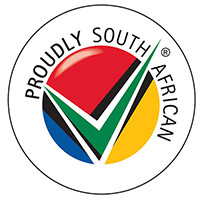Photo: REUTERS/Siphiwe Sibeko
Eustace Mashimbye
The pharmaceutical sector has been flagged by numerous government initiatives and workstreams as a priority sector for localisation, which means that all public sector entities that enter into procurement processes for pharmaceuticals must look to local manufacturers and prioritise their spending in South Africa.
The public sector is the largest procurer of pharmaceutical products in the country, with the capacity to order in volumes that could be critical for local producers, their economies of scale and the recovery of factories
However, through a tender process that is fundamentally prejudiced against local manufacturers, the government is, in all likelihood, set to import a large amount of pharmaceuticals, if the awarding of the current tender for antiretrovirals (ARVs) goes the way Pharmisa (Pharmaceuticals made in South Africa) fear
The local pharmaceutical landscape is not only "big pharma".
The sector is transforming, with many new black entrants to the market and looking to get a foot in the door, which they need the government to open for them.
Instead, it remains firmly closed. In 2018, it was estimated that the number of direct employees in the sector stood at 9 600, with the potential to support many more, given the opportunity.
Instead of bringing local pharmaceutical companies into the supply chain, per the government's own policy for the sector, the government is forcing out new entrants and preventing existing companies from realising the significant potential for investment, growth, job creation and tax generation, all of which would be possible if South African companies were awarded public sector tenders.
Despite localisation and local procurement policies that relate to pharmaceuticals, the combined pharmaceutical and medical equipment sector has become the fifth-biggest contributor to the country's current account deficit.
The value of imported pharmaceuticals (principally from Asia) has continued to grow every year, to the detriment of the local industry.
If both existing pharmaceutical companies and potential entrants into the market see tenders being awarded to importers, their incentive to invest in and grow their manufacturing plants, thereby creating more jobs, is diminished.
In a cycle that reduces the capacity for domestic production, future tenders will continue to go overseas, as local manufacturers fall behind and are unable to meet demand.
According to Pharmisa, which represents pharmaceutical manufacturers in South Africa, they are able and more than willing to meet that demand.
If the Covid-19 pandemic has taught us anything, it is that we can and should be self-sufficient in the provision of preventative medication.
Dependence, as we saw in the initial slow roll-out of the Covid-19 vaccination programme, because of the lack of stock, is a dangerous position to be in when dealing with the health of a nation.
Despite all of the above, a huge tender for ARVs (Bid HP 13 2022), which closes on September 6, has specifications that fly in the face of the government's efforts to assist domestic manufacturers, and provides importers with a significant advantage over local producers.
South Africa is the largest consumer of ARV products globally, because we have about 7 million cases and the biggest treatment programme in the world, yet we are using the need of infected people to export jobs to the countries from which we are importing medicine.
Although the issues relating to this tender are complex, involving elements including the cost of active ingredients, one small but fundamental change to its specifications could make all the difference to local companies wanting to tender, and this relates to something as simple as the pack sizes of packaged drugs.
"Simple" is perhaps not a fair summary.
The terms and conditions of the tender require that companies bidding for the tender confirm their capacity to supply specific pack sizes, which South African producers do not currently run, nor could they confirm their ability to change their production lines in time for the September 6 closing date.
Importers of the same drugs are known to have these pack sizes in their inventory already.
Now, more than at any other time, we require a reliable and stable supply of ARVs. Immuno-compromised patients with high viral loads have a higher risk of contracting Covid-19, and our source of ARVs cannot be compromised in the event that incoming supply routes are disrupted.
South Africa, like many countries around the world, has health and industrial imperatives to meet in respect of pharmaceuticals. From a health perspective, medication should be reliable and accessible. From a reindustrialisation point of view, the sector's potential for growth and job creation is also important.
Pharmaceuticals (together with plastics) have received the most investment from the Department of Trade, Industry and Competition's Black Industrialists Scheme since its introduction in November 2015.
However, if state tenders continue to be lost to importers whose presence in this country amounts to a small workforce in sales and marketing and not manufacturing, there will be no return on investment for anyone in the investment chain.
Proudly SA joins Pharmisa in calling for better constructed and worded tender documents and a concerted commitment by public health entities to our local pharmaceutical sector in order to enhance local production capacity significantly, which will make a direct contribution to economic growth and much-needed job creation.
The public sector, through its procurement process can, like 2019 Idols SA winner Luyolo, bring some Sunshine through the rain for this industry, particularly during these trying health and economic times.
Eustace Mashimbye is the chief executive of Proudly South African.
*The views expressed here are not necessarily those of IOL or of title sites.


